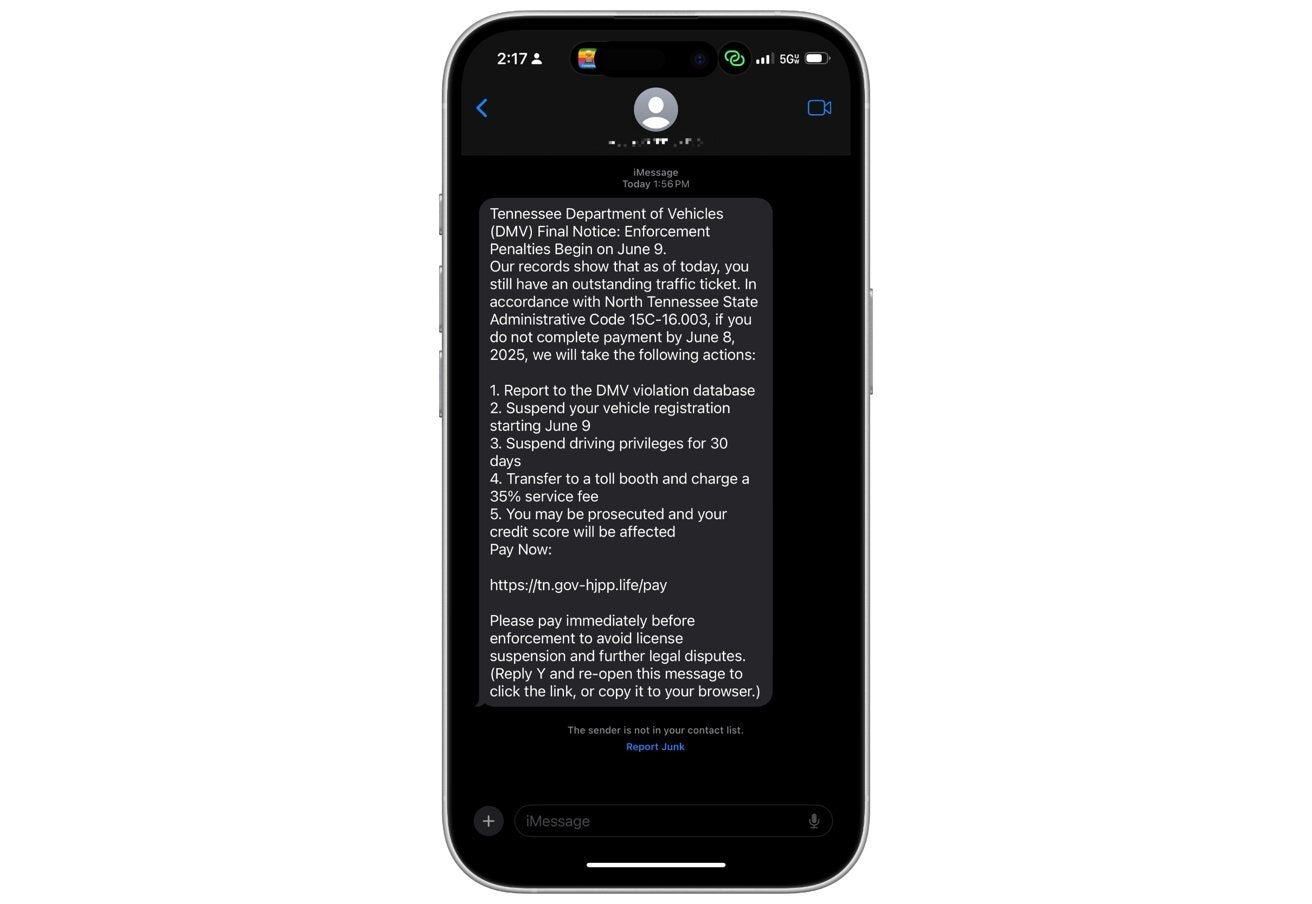
Watch out for a new sneaky scam targeting iPhone users all across the U.S.! Scammers are sending fake text messages, pretending to be from government authorities like the Department of Vehicles (DMV), with threats of overdue traffic tickets, legal action, and even license suspensions if you don’t pay up.
The scam often contains a link to a fake payment site and urges you to reply with the letter “Y” to activate the link. Here’s the catch: Apple has a feature that deactivates links from unknown senders. But if you reply, the scammer’s number becomes a ‘known sender,’ and the link will be clickable, putting you at risk.
It’s not just Tennessee – reports of similar scams have surfaced in Texas, Virginia, and Pennsylvania. Though the agency names and wording may differ, the tactic remains the same: scare you into paying by impersonating a government agency and using a fraudulent payment link.
But beware: the domain in the link is usually fake. For instance, “tn.gov-hjpp.life/pay” is a spoofed domain with no affiliation to any official government service. Additionally, the message might come from a foreign phone number, often with the Philippines’ country code +63.
This kind of scam has been on the rise, with over 60,000 fake domains in use. The FBI has received thousands of complaints related to these scams, and there are multiple federal warnings urging you to avoid clicking on any links from suspicious messages.
The scam often starts with a low “fine” to make you feel comfortable paying right away. But the real goal? To steal your credit card information. Once the scammers have your details, they can make unauthorized charges to your account.
Even more concerning, the scammers have found ways to bypass Apple’s security features. By having you respond with “Y,” they can add the sender to your list of “known senders,” making the link clickable and potentially exposing you to fraud.
How to Spot and Protect Yourself:
If you get a suspicious message like this, don’t panic! Do not click on any links or respond. The best approach is to block the sender and report the message as junk in your Messages app. If you’re ever unsure, avoid acting in haste. Banks and government agencies will never ask for payment details via text. Always double-check and contact the organization through official channels if you think the message might be legitimate.
Look out for telltale signs of a scam: unusual domain names with strange suffixes like “.life,” foreign phone numbers, vague threats of legal consequences, and demands for immediate payment. If you take a moment to inspect the message calmly, you’ll spot these red flags and avoid falling victim to the scam.
Remember, don’t give out personal or payment information to unknown senders in text messages. It’s always better to verify before taking any action.
2 comments
Scam texts are getting so creative. Just got one about a toll violation, and it felt so real. Too bad scammers think we’re all idiots! 🚫🚫
Got one of these today 😡. If I ever get a legit DMV text, I’ll definitely call them directly instead of clicking a link. Smh, people are so desperate!